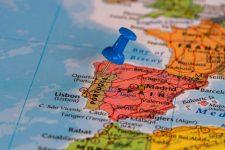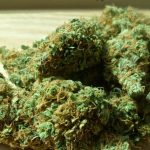Portugal’s Experience of Drug Decriminalisation

Around one percent of the population in Portugal was addicted to heroin in 1999. The nation also reportedly had the highest number of drug-related AIDS deaths in the European Union. The government had been waging the usual war on drugs since the 1980s, but it wasn’t working.
However, Portugal’s current drug-induced death rate sits at three per million residents, which is five times lower than the European average. While in 2014, the number of new drug-related HIV infections had plummeted to 40, compared with 1,016 thirteen years prior.
So what happened? Well, in 2001 the Portuguese government took the unprecedented step of decriminalising all illicit substances, from marijuana to crystal methamphetamine to heroin.
The Portuguese drug policy has been so successful that the ultra-conservative and quasi-judicial body, the International Narcotics Control Board, lauded it as exemplary in December 2015.
A sheltered nation collides with the counterculture
The Carnation Revolution swept through Portugal in April 1974. The bloodless military coup brought an end to the authoritarian dictatorship that had kept the country in isolation for almost half a century.
Prior to this democratising movement, Portugal had been insulated from drugs and the emerging counterculture of the west. But as the influence of the outside world flooded in, experimentation became the name of the game, and along with this drug use spread.
But while other nations gradually became accustomed to the use of drugs, the Portuguese didn’t get that opportunity. And due to its location on the Iberian Peninsula, the newly open Portugal became the ideal route for drug traffickers transiting to Europe.
Drug use became widespread, along with high levels of drug-related crime, and the problem was publicly visible. This was further impacted in the 1980s, with the appearance of HIV/AIDS, which brought the crisis to breaking point.
Initially, the authorities responded by increasing drug penalties, employing extra police and stigmatising drug use via television advertising campaigns that equated it with madness, evil and crime.
A health issue, not a criminal one
By the late 1990s, it was becoming apparent that the criminal justice system wasn’t working, when it came to dealing with the nation’s drug crisis.
As Dr Alex Wodak, president of the Australian Drug Law Reform Foundation, recalls, in 1998, Dr João Goulão – the architect of the Portuguese model – chaired an eleven person committee that was “asked to develop a more effective national policy.”
This committee produced a report based on “prevention treatment, harm reduction and social reinsertion.” They gave the government the option of accepting “all of its recommendations,” not just those “that were more attractive politically,” Dr Wodak said. And the government accepted.
“One of the most important reasons why this policy has been so successful is that the committee recommended that drug treatment capacity and quality had to be greatly improved,” Dr Wodak told Sydney Criminal Lawyers®. “This could only happen if there was a significant increase in funding.”
The Portuguese model in action
Of course, drugs aren’t legal in Portugal. As Dr Wodak points out authorities who find a person in possession of drugs in quantities above what’s regarded as personal use, they’re still sent to the criminal justice system on drug trafficking charges.
But if law enforcement officers find a person in possession of what is considered to be a 10-day supply of an illicit drug – a gram of heroin or ice, two of cocaine, or 25 grams of cannabis – they’re not arrested, rather they’re sent to what’s called a Commission for the Dissuasion of Drug Addiction panel.
The three person panels are usually made up of a doctor, a lawyer and a social worker. The panel can recommend a minor fine, or if a person has appeared before them on a number of occasions, they can recommend a prescribed treatment.
However, 81 percent of people appearing before the panels receive no penalty at all.
According to Dr Wodak, these panels have “strong community and political support.” And successive governments have done little to change how they run. “Although, Portugal was badly affected by the Global Financial Crisis,” the doctor added, “funding for this policy remained virtually intact.”
Declining drug use
Figures released by the Transform Drug Policy Foundation in 2014 reveal that the decriminalisation policy has been a resounding success.
Despite what detractors said, drug use didn’t skyrocket following its decriminalisation. After a slight initial increase by 2007, drug use has since fallen back down. And amongst the 15 to 24-year-old population – those most at risk of taking up drugs – drug use has declined overall.
The global influence of the Portuguese model
Portugal’s decriminalisation drug policy is globally understood to be a success. And while no other countries have gone as far as to reproduce it, many have sent representatives to investigate how the system works.
Indeed, Richard Di Natale, leader of the Australian Greens, has been on a fact finding visit to Portugal. The former drug and alcohol clinician is an advocate of the country’s system, and it helped shape his party’s renewed drug policy released in November last year.
Dr Wodak explained that the Portuguese drug policy has influenced about 40 countries around the world to substantially reduce or eliminate “criminal sanctions for people found in possession of drugs” for personal use. These nations include the Netherlands, Switzerland, India and Jamaica.
Decriminalisation in Australia
And this also includes Australia, where drug use is decriminalised in a number of forms for
personal use and possession. In South Australia, the ACT and the Northern Territory, if you’re found in possession of a small amount of cannabis, you can be dealt with via a civil penalty scheme, meaning you receive a fine.
While in most states and territories you can forgo criminal penalties by being referred by police to drug diversion programs. In some states and territories this is for all illicit substances, while in others, this only applies to cannabis.
The black market remains intact
But there’s still room for improvement in Portugal, as Dr Wodak sees it, because the drug policy didn’t do anything to address the black market.
“The need now is to start regulating as much of the black market as possible,” the doctor concluded, “while recognising that this is not going to be easy or politically attractive.”







